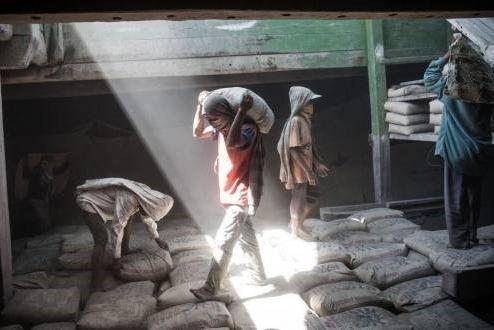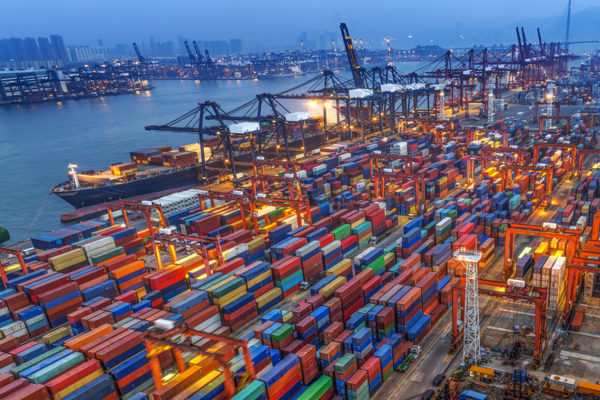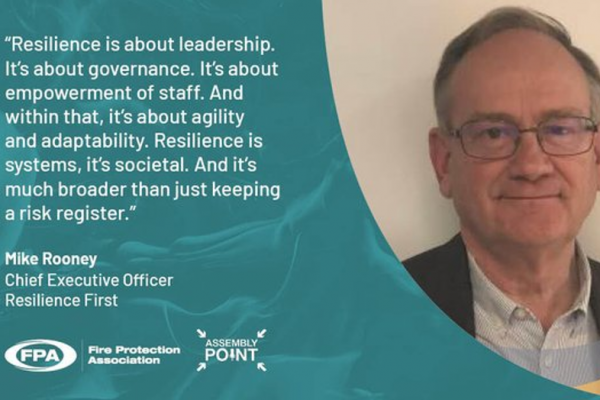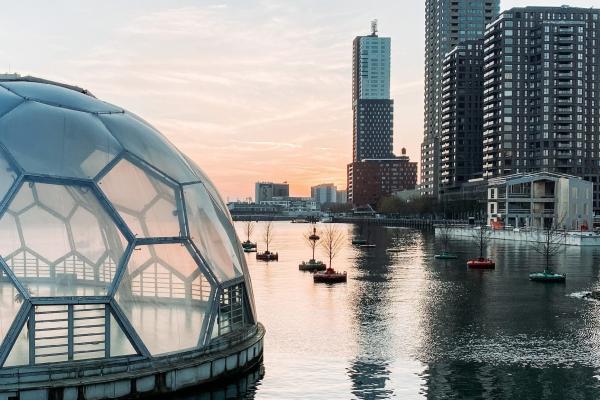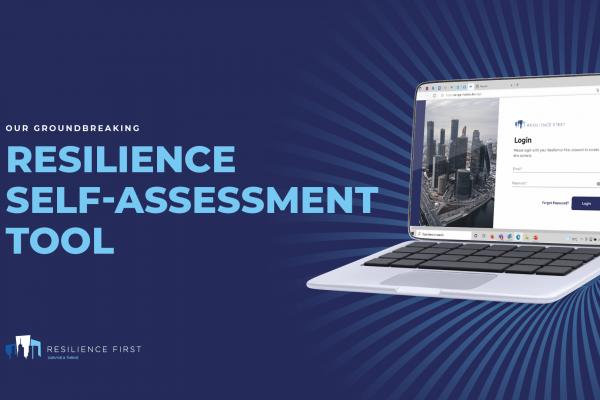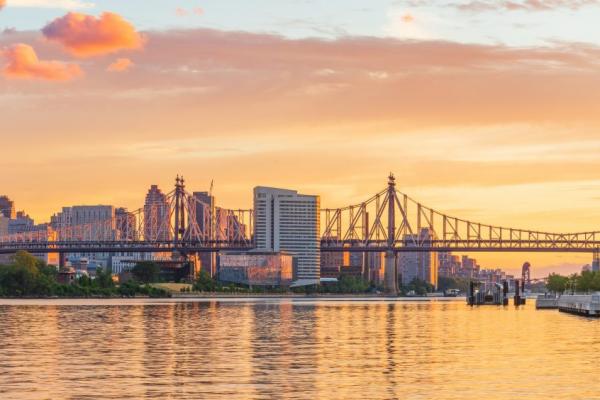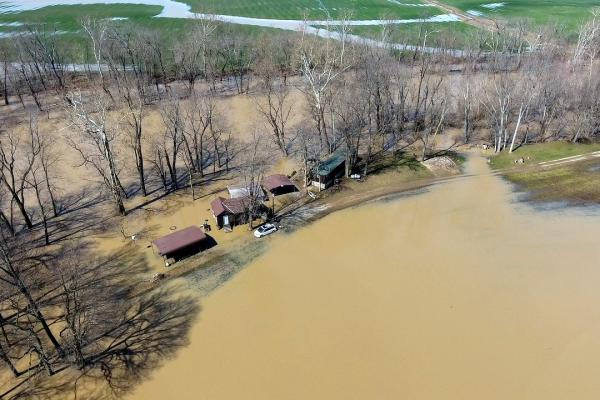Why Modern Slavery is a resilience issue for your business
Posted on
To many of us in western Europe, the UK included, modern slavery is thought to be something that happens in other parts of the world, mostly involving people from poorer regions. So, you might be surprised to hear that over 10,000 people in the UK were identified as victims of modern slavery in 2020 alone.
The next big economic shock?
Posted on
Ever wonder what might be round the next corner? Few of us predicted a global pandemic on the scale we’ve just seen. Not that many factored in a Russia-Ukraine conflict into their 2022 planning. There will always be ‘known unknowns’ but it helps to be better prepared.
Building Business Resilience to Fire
Posted on
Fires in business premises are thankfully not common. However, we always need to be prepared for the unthinkable.
Disrupting global supply chains
Posted on
As we seek to recover from the pandemic’s disruption to manufacturing and retail, the impact from the Russia-Ukraine conflict is certainly being felt through supply chains and transportation corridors and, of course, through disruption to yields, even temporarily, in food commodities, including wheat and sunflower oil. Now added to this are impacts from China as the country continues to try to achieve COVID-zero status.
Building Resilience – Fire Protection Association podcast
Posted on
Resilience First CEO, Mike Rooney, recently took part in FPA’s podcast on Resilience. The main message from Mike is that resilience is about leadership, governance and empowerment and is much more than just keeping a risk register. Businesses need to be adaptable and agile.
UK government pushes ahead with new energy strategy – what can business expect?
Posted on
The UK government has published its much-awaited Energy Security Strategy. With a focus on securing a more resilient UK energy supply free from foreign dependence, and retain the UK’s net-zero ambitions, there was no surprise that the government confirmed its intention to construct eight new nuclear reactors and to make planning systems for offshore wind turbines easier.
How to Deliver on ESG Expectations?
Posted on
Built environment design companies consider a range of resilience metrics within their projects. However, the internal assessment of these factors within the company itself is harder to establish. Although risks can be measured against business operations, it does not capture the full extent of how resilient the company is, or what elements are missing to improve the organisation’s current status.
Finding innovation to support resilient infrastructure
Posted on
Pushing the Boundaries of Innovation in Sustainable and Resilient Infrastructure is the latest in a series of reports from our partner, The International Coalition for Sustainable Infrastructure (ICSI), on sustainable and resilient infrastructure. ICSI’s new Innovation Action Track is designed to profile originality in engineering practice and solutions and support the sustainable and resilient learning for others from these.
Resilience First reviews latest pressures on UK hospitality sector: What does UK hospitality need to become more resilient?
Posted on
Two years on from the UK’s first lockdown, the hospitality sector remains at the forefront of major pressures when one considers the global uncertainty the pandemic continues to generate, the labour and supply fallouts from Brexit, climate change, and now the conflict in Ukraine.
World-leading engineering firms join forces to advance infrastructure sustainability, resilience and climate action
Posted on
Resilience First, in partnership with the International Coalition for Sustainable Infrastructure (ICSI), has today announced the launch of the Engineering Leadership Group (ELG), a new engagement platform to capture the voice of global engineering firms.
Levelling up through business resilience
Posted on
Resilience First, the world’s largest global business network with a mission to advance resilience best practice, is delighted to announce a partnership with the Greater Manchester Chamber of Commerce (GMCC).
Green Bonds - the need to address climate change
Posted on
On 15 February 2022, the Mayor of London, Sadiq Khan, announced he was committing £90M to help unlock more than £500M of private sector investment through green bonds. With the move towards green investment and an increasing focus on Environmental, Social Governance (ESG) strategies, green bonds are rapidly emerging as an attractive proposition for many cities, governments, and private companies.
Summary for Urban Policymakers
Posted on
Resilience First is part of a unique collaboration to co-create a Summary for Urban Policymakers (SUP) that will present the latest Intergovernmental Panel on Climate Change (IPCC) assessments in accessible and targeted summaries that can help inform action at the city scale. It will be published as a four-volume series over the course of the 2022 calendar year culminating in a report to be released at COP 27.
Emotional resilience – a continuing journey
Posted on
Our second guide to Emotional Resilience, ‘Lessons from the real world: A practical guide after crises and major incidents’, looks at a model for crisis and trauma resilience built around three pillars, namely Resistance, Resilience and Recovery.
Early warnings: learning lessons
Posted on
The Kedarnath tragedy in Uttarakhand (India) in mid-2013 highlights lessons around resilience which are still pertinent today. Savin Bansal, as Master's student at UCL, reviews some of those lessons and the need not just for better early warning systems but also the people to put the warnings into practical effect.
Resilience First launches ground-breaking Resilience Self-Assessment Tool
Posted on
Launched at the end of January, Resilience First is delighted to present its ground-breaking, Resilience Self-Assessment Tool, which provides a long-awaited means for businesses to measure and promote their organisation’s resilience.
Resilience – from acorns grow
Posted on
How can we help improve resilience of young people, knowing that they will become the leaders of tomorrow and wanting the skills and resolve to rise to new challenges. Here are some pointers that may help, pointers that identify the key ingredients of what it takes to be resilient.
RESILIENCE RISING – A NEW GLOBAL NON-PROFIT CONSORTIUM
Posted on
A new global non-profit consortium, Resilience Rising, is launching this month. Its purpose is to enable and create a safe, resilient, and sustainable future for all.
Converting warnings into actions
Posted on
As the scale and frequency of severe disasters are likely to increase in the coming years, climate change being just one driver, then it is important to overcome the impediments to inaction and not place an over-reliance on early warning systems to overcome people-centric deficits. A new report sheds light on how to enhance warnings.
Protect Duty - a further step to legislation
Posted on
A Ministerial statement published on 11 January gives the government's position on the outcome of the consultation exercise around any potential 'Protect Duty' legislation to improve security measures that could protect the public from terrorist attacks. Resilience First has been very supportive of the initiative since the beginning and reviews the latest response.
The rapid advance of AI
Posted on
Resilience First, in partnership with Cranfield University and Accenture, will soon be releasing a report on digital resilience that will look at developments to enhance and challenge the resilience of organisations.
Holding back the water
Posted on
With more properties at risk of flooding, certain insurers are adopting new ways to help customers deal with the trauma and the damage. We can expect to see more innovation from the sector as costs rise for all parties.
A valuable contribution to building a resilient society
Posted on
The House of Lords' Select Committee on Risk Assessment and Risk Planning has published a report on 'Preparing for Extreme Risks: Building a Resilient Society'. It is an important contribution to the debate on national resilience following the UK Government's Integrated Review.
The Defence contribution to resilience
Posted on
The concept of Military Aid to the Civil Authorities (MACA) is an old one but the UK MOD has recently updated its doctrine on how Defence can contribute to the nation's resilience through MACA.

